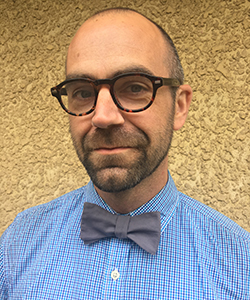There is an ongoing theme that emerges when you read the holy books from the major religions. They are not books of dense theology; rather, they are books of stories. They are the written accounts of how people have experienced God in their lives, and these books pass along to future generations these stories so that they might learn and grow from them. Religions tell stories not just because we as humans love drama, or comedy, or poetry, but because these stories are intended to change individuals, to reorient them. And not only do these stories change us internally, they often encourage change in individual behaviors, and, fundamentally, these stories have a capacity to change the world.
To properly address the issue of antimicrobial resistance, or drug-resistant disease, will require a world of change. More accurately 7.4 billion people will need to change their relationship with medicines, countries and non-governmental organizations will need to work to improve access to clean water and reliable electricity, and the impacts that antimicrobials—drugs—have on agriculture and the environment throughout their life cycle will need to be better researched, understood, and mitigated.
This magnitude of change will not come simply through a presentation of facts and estimate impacts. Just like deep systematic theological works are rarely what enliven faith in people, dense journal articles and jargon are unlikely to cause real change in addressing drug-resistant diseases. What is needed is a story, a story with which religion is already acquainted. Now the story of drug-resistant disease could be a story that reads like an apocalyptic tale, or it could be a story about hope and renewal and about the beginning of a new way of interacting with creation.
Religious institutions in general, and those from the Judeo-Christian arena in particular, stand in a unique position to tell a story of how humanity is called by God to be good stewards of all with which we have been blessed, not just money and possessions, but the larger environment, plants, water, and even medicines. By telling the story of how we are called to live in a right relationships with medicines, to not misuse them, take them when not needed, or allow counterfeit drugs to continue, religions can tell a story that can change the path that the world is currently following.
Religious institutions stand in a very critical place in society where the weight of the words of their leaders take on a greater resonance. They are well positioned to make a difference by taking up the issue of drug resistance and by inviting their followers to choose a new way that is counter to what the world is currently doing. This is a common theme among religions, a recognition that God’s way is different than the way of the world, but also a recognition that in following God’s way there is a path to hope and new life.
Religious leaders can tell a story about how by confronting this issue of drug-resistant diseases head on, and by taking the necessary steps to affect real change in the world, we are living out our call to be part of God’s work to bring healing and hope. They can tell a story of how new life can spring from what currently looks like certain doom. And they can do that because that is the story of God, of changing what seems inevitable, of bringing life out of death, of bringing light where it seems there is only darkness.
While not all institutions may be running hospitals, or clinics, or are engaged in community public health work, every religious institution, from a small synagogue in a rural area, to a mosque, to a megachurch, to the Vatican, is telling the story of God and we encounter God in the world.
Currently few faith traditions have taken up this call to tell a new story of how God is calling us to be engaged with addressing drug-resistant diseases. By helping to educate the leaders of the faith, by opening their eyes to this concern, by encouraging them to tell the story, religious leaders can do what they do best: tell people a story about how they might encounter God that can ultimately change the entire world.

